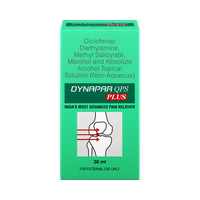Rs.521for 1 strip(s) (15 capsules each)
Available in other variants
Composition FOR Polycap
Simvastatin(20mg),Ramipril(5mg),Atenolol(50mg),Hydrochlorothiazide(12.5mg),Aspirin(100mg)food interaction for Polycap
alcohol interaction for Polycap
pregnancy interaction for Polycap
lactation interaction for Polycap
food
alcohol
pregnancy
lactation
Polycap Capsule may be taken with or without food, but it is better to take it at a fixed time.
None
None
CAUTION
It is unsafe to consume alcohol with Polycap Capsule.
UNSAFE
Polycap Capsule is highly unsafe to use during pregnancy. Seek your doctor's advice as studies on pregnant women and animals have shown significant harmful effects to the developing baby.
UNSAFE
Polycap Capsule is probably unsafe to use during breastfeeding. Limited human data suggests that the drug may pass into the breastmilk and harm the baby.
CONSULT YOUR DOCTOR
SALT INFORMATION FOR Polycap
Simvastatin(20mg)
Uses
Simvastatin is used in the treatment of high cholesterol, high triglycerides and prevention of heart attack and stroke.
How it works
Simvastatin is a lipid-lowering medication (statin). It works by blocking an enzyme (HMG-CoA-reductase) that is required in the body to make cholesterol. It thus lowers "bad" cholesterol (LDL) and triglycerides, raising the level of "good" cholesterol (HDL).
Common side effects
Constipation, Headache, Upper respiratory tract infection, Abdominal pain, Muscle pain, Joint pain, Nausea, Increased transaminase level in blood, Muscle damage, Rhabdomyolysis, Immune-mediated necrotizing myopathy
Ramipril(5mg)
Uses
Ramipril is used in the treatment of Hypertension (high blood pressure), Heart Failure and prevention of heart attack and stroke.
How it works
Ramipril is an angiotensin converting enzyme (ACE) inhibitor. It works by reducing stress on the heart and relaxing blood vessel so that blood flows more smoothly and the heart can pump blood more efficiently.
Common side effects
Dizziness, Drowsiness, Dry cough, Headache, Fatigue, Nausea, Vomiting, Decreased blood pressure
Atenolol(50mg)
Uses
Atenolol is used in the treatment of Angina (heart-related chest pain), Arrhythmia, heart attack and Hypertension (high blood pressure).
How it works
Atenolol is a beta blocker that works specifically on the heart. It works by slowing down the heart rate and makes the heart more efficient at pumping blood throughout the body. The exact mechanism by which Atenolol prevents migraines is not established yet and may vary from person to person. Atenolol can prevent migraines by decreasing the excitability of the nervous system. Atenolol is also believed to decrease the dilation of blood vessels that are responsible for migraine.
Common side effects
Slow heart rate, Dizziness, Cold extremities, Headache, Fatigue, Gastrointestinal disturbance, Low blood platelets, Sleep disturbance, Increased transaminase level in blood, Purpura, Mood changes, Confusion, Psychosis, Hallucination, Paresthesia (tingling or pricking sensation), Visual disturbance, Impotence
Hydrochlorothiazide(12.5mg)
Uses
Hydrochlorothiazide is used in Hypertension (high blood pressure), Heart Failure and kidney stone. It treats oedema (fluid overload) associated with heart, liver, kidney or lung disease.
How it works
Hydrochlorothiazide is a diuretic which lowers blood pressure by removing extra water and certain electrolytes from the body. Over time it also relaxes blood vessels and improves blood flow.
Common side effects
Increased uric acid level in blood, Decreased magnesium level in blood, Orthostatic hypotension (sudden lowering of blood pressure on standing), Anemia (low number of red blood cells), Urticaria, Xanthopsia, Pulmonary edema, Agranulocytosis (deficiency of granulocytes in the blood)
Aspirin(100mg)
Uses
Aspirin is used for fever, Angina (heart-related chest pain), headache, heart attack, dental pain, stroke, post operative pain, arthralgia, muscle pain, rheumatoid arthritis, osteoarthritis and rheumatic fever. It decreases the chances of having another heart attack or stroke from a disease related to your heart or blood vessels.
How it works
Aspirin is a non-steroidal anti-inflammatory drug (NSAID) with anti-platelet action. It works by preventing platelets from sticking together which decreases the formation of harmful blood clots. This lowers the chance of heart attack or stroke.
Common side effects
Increased bleeding tendency, Nausea, Vomiting, Angioedema (swelling of deeper layers of skin), Gastrointestinal bleeding, Low blood platelets, Dyspepsia, Inflammation of the nose, Shortness of breath, Red spots or bumps, Agranulocytosis (deficiency of granulocytes in the blood), Aplastic anemia, Allergic edema, Anaphylactic reaction, Intracranial bleeding, Hemorrhagic vasculitis, Bronchospasm, Asthma attack, Menorrhagia (heavy menstrual bleeding), Stevens-Johnson syndrome, Lyell’s syndrome, Purpura, Erythema nodosum, Erythema multiforme
SUBSTITUTES FOR Polycap
No substitutes foundExpert advice FOR Polycap
- It should be taken in the evening after dinner and before sleeping.
- It should be taken in addition to regular exercise and low-fat diet to lower levels of fat in the blood.
- Inform your doctor if you experience fatigue, muscle weakness or muscle pain.
- Your doctor may check your liver function before starting the treatment and regularly thereafter. Inform your doctor if you notice signs of liver problems such as stomach pains, unusually dark urine or yellowing of skin or eyes.
- Inform your doctor if you have kidney disease, liver disease or diabetes before starting treatment with this medicine. If you are diabetic, monitor your blood sugar level regularly as Simvastatin may cause an increase in your blood sugar level.
- Do not take Simvastatin if you are pregnant, planning a pregnancy or breastfeeding.
- Simvastatin treats high cholesterol by lowering "bad" cholesterol (LDL) and triglycerides (fats). It should be taken in addition to regular exercise and low-fat diet.
- It also reduces the risk of heart attack and stroke.
- In general, Simvastatin is safe. It may cause diarrhea, gas or an upset stomach. If any of these happen to you, take it with food.
- Inform your doctor if you experience fatigue, muscle weakness or muscle pain.
- Your doctor may check your liver function before starting the treatment and regularly thereafter. Inform your doctor if you notice signs of liver problems such as stomach pains, unusually dark urine or yellowing of skin or eyes.
- Inform your doctor if you have kidney disease, liver disease or diabetes before starting treatment with this medicine. If you are diabetic, monitor your blood sugar level regularly as Simvastatin may cause an increase in your blood sugar level.
- Do not take Simvastatin if you are pregnant, planning a pregnancy or breastfeeding.
Frequently asked questions FOR Polycap
Simvastatin
Q. What should I know about high cholesterol?
Cholesterol is a type of fat present in your blood. Total cholesterol is determined by the total amount of LDL and HDL cholesterol in the body. LDL cholesterol is called “bad” cholesterol. Bad cholesterol can build up in the wall of your blood vessels and slow or obstruct blood flow to your heart, brain, and other organs. This can cause heart disease and stroke. HDL cholesterol is called “good” cholesterol as it prevents the bad cholesterol from building up in the blood vessels. High levels of triglycerides are also harmful for you.
Q. What is Simvastatin used for? How does it work?
Simvastatin belongs to a class of medicines called statins that lower the cholesterol in the blood. It is used along with a healthy diet and exercise to reduce bad cholesterol and increase the amount of good cholesterol in the blood. It works by slowing the production of cholesterol in the liver in order to decrease the amount of cholesterol that accumulates on the walls of arteries. Improving the levels of cholesterol in the blood helps to reduce the risk of heart attack or stroke.
Q. When should I take Simvastatin?
Simvastatin is generally taken once a day preferably in the evening after dinner. Try taking this medicine at the same time every day to help remember when to take it.
Ramipril
Q. I have been diagnosed with heart failure and the doctor has prescribed me Ramipril. Why?
Ramipril belongs to the angiotensin-converting enzyme (ACE) inhibitor group of drugs. It relaxes and widens the blood vessels, making it easier for the blood to pass through the vessels. As a result of this, the heart does not have to work more to push the blood. Since the workload on the heart is reduced, it is beneficial in heart failure. Additionally, it is also used to lower blood pressure and prevent stroke.
Q. When can I expect my blood pressure to be normal after starting Ramipril?
Ramipril takes a few hours to reduce high blood pressure but since there are no symptoms, you will not notice any difference. It takes a few weeks for the blood pressure to get fully controlled. Do not stop taking the medicine. Keep taking it even if you feel better or if your blood pressure is normalized.
Q. Can Ramipril increase potassium levels? If yes, what should be done?
Ramipril may increase potassium levels in the blood, especially if you have uncontrolled diabetes mellitus, kidney problems, and dehydration. Potassium levels may also increase in patients using potassium salts or medicines which increase potassium levels or are aged more than 70 years of age. If you have any of these conditions and are using Ramipril, you need to be careful and get regular blood tests done to monitor potassium levels.
Atenolol
Q. How many hours does Atenolol take to reduce high blood pressure?
Usually, Atenolol starts working within 3 hours, but it can take up to 2 weeks to reach its full effect. You may not feel any difference in blood pressure after taking the medicine, but this does not mean that the medicine is not working. It is important to keep taking your medicine in the prescribed dose and duration to get the maximum benefit of Atenolol.
Q. Should I take Atenolol in the morning or at night?
Atenolol can be taken anytime in the morning or evening, usually prescribed once or twice daily. However, your very first dose of Atenolol may make you feel dizzy, so it is better to take your first dose at bedtime. After that, if you do not feel dizzy, you may take it any time of the day. Follow the advice of your doctor. It is advised to take it at the same time each day so that you remember to take it and consistent levels of medicine are maintained in the body.
Q. What if I forget to take a dose of Atenolol?
If you have missed a dose of Atenolol, take it as soon as you remember. However, if it is almost time for your next dose, skip the missed dose and take the next scheduled dose. Do not double the dose to make up for the missed one as this may increase the chances of developing side effects.
Hydrochlorothiazide
Aspirin
Q. How long should I take Aspirin for?
You will need to take Aspirin for the rest of your life unless stopped by your doctor.
Q. When will I feel better after taking Aspirin?
Aspirin is known to reduce the risk of heart attack and stroke. You may not feel any difference after taking Aspirin. Keep taking it as prescribed by your doctor to keep getting the benefits.
Q. How long does Aspirin take to clear from the body?
It takes around 10 days for Aspirin to get cleared from the body after completely stopping this medicine.























